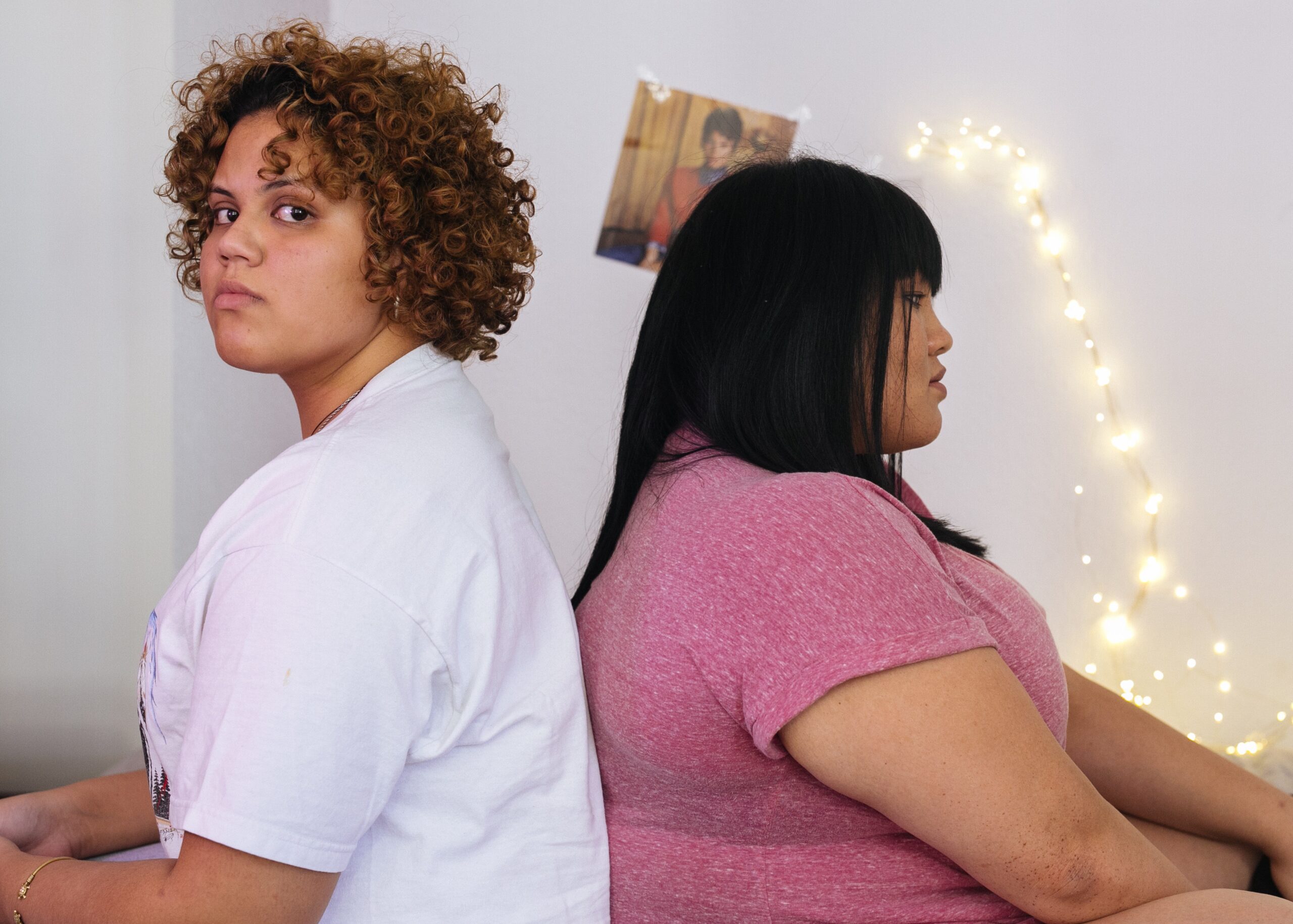Dating Someone With ADHD: What to Expect

Featured image by EKATERINA BOLOVSOVA, Pexels.com
Updated on 26th June 2023.
Being in a relationship with someone who has ADHD can be challenging. Find out more here about ADHD and relationships and what can help.
What is it like being in a relationship with someone who has ADHD?

Image by RF._.studio, Pexels.com
A person with ADHD in a relationship can misunderstand their partner. The non-ADHD partner can find it frustrating to be misunderstood.
Two of the main traits of ADHD, inattentiveness and impulsivity, can affect relationships.
Inattentiveness in relationships means the person with ADHD zoning out of conversations and missing out on important details.
Impulsivity in relationships means the ADHD partner blurting out things without thinking, which can make the non-ADHD partner feel hurt.
Adults who have undiagnosed ADHD may find it even more difficult to communicate in relationships.
If the person in the relationship has ADHD, they may feel as if the non-ADHD partner is criticising them, nagging them or micromanaging them. The person with ADHD cannot seem to please their spouse or partner no matter what. They also feel as though their partner is disrespecting them, so they find themselves avoiding their partner.
If the person in the relationship does not have ADHD, they may feel as if the person with ADHD is ignoring them or feel unappreciated. They can be tired of taking care of everything on their own and feel as though they are the only responsible person in the relationship.
Are relationships hard for people with ADHD?

Image by RDNE Stock project, Pexels.com
The editors of ADDitude Magazine have asked 1,200 partners, with or without ADHD, to name the hardest aspects of their relationships. Here are some of their responses:
Lack of empathy
A woman feels as if her husband does not understand her ADHD. He perceives her as lazy, selfish and crazy
A man needs his female partner to understand his anxiety and ADHD more, but she still does not listen to him.
Another man with ADHD says his female partner thinks he is doing things as part of his diagnosis on purpose when he is not really.
ADHD partner allegedly neglecting the non-ADHD partner
Two non-ADHD people think their ADHD partner’s projects matter more than they do.
One partner feels as if they are not getting any help from their ADHD partner.
Shame from the ADHD person
A woman feels as if she would be a better wife if her brain did not shut down.
A person believes their marriage could have been better if they had a “normal” brain.
One ADHD partner feels as if they cannot measure up with their non-ADHD partner.
People with ADHD and their non-ADHD partners can also experience difficulties with the following in their relationships:
- Self-absorption
- Distractibility
- Diverted attention
- Time management
- Extreme emotions
- Forgetfulness
- Disorganisation
- Denial
Can someone with ADHD fall in love?

Image by Andre Furtato, Pexels.com
While all kinds of people can fall in love, the experience of people with ADHD falling in love can be more intense for them. This is because the person with ADHD can hyperfocus on the person they are in love with. People with ADHD who hyperfocus on the other person in the relationship can lose interest in work and hobbies.
When someone with ADHD falls in love for the first time, they can experience more intense emotions than those who do not have ADHD. These people “might feel a deep sense of intimacy and acceptance” when they first fall in love. “They might also have a surge in confidence,” which is something that a lot of people with ADHD lack.
Can adults with ADHD have successful relationships?

Image by Katerina Holmes, Pexels.com
Adults with ADHD can have successful relationships just like other adults can.
For an adult with ADHD to have a successful relationship, they should follow these effective communication strategies:
- Use, “I feel,” statements to focus on feelings
- Avoid blaming your partner
- Communicate face-to-face as often as possible
- Use non-verbal cues where appropriate
- Repeat and rephrase what your partner says in order to avoid allowing your mind to wander
- Ask questions
- Write down important takeaways from the conversation
- Talk to your partner about how your ADHD can “impair your ability to remember things or follow through” with tasks. Telling your partner about your struggles should help them understand how ADHD impacts your behaviour
- Maintain eye contact when listening
- Consider using a fidget toy during long conversations “to keep your mind engaged”
- Focus on teamwork such as dividing tasks based on strengths, evaluating the workload, delegating tasks and relying on routines
Non-ADHD partners may find the following tips helpful:
- Deciding what’s real and unreal, such as determining how much organising, planning and prioritising you and your ADHD partner can do
- Lowering your expectations, such as making the same request more than once
- Examining roles and responsibilities including those you might do better than your partner does them
- If a certain activity gets too much with your ADHD partner, find a way to decline to participate next time
- Practising self-care
- Creating and maintaining healthy boundaries such as taking a personal inventory; (I.e., how will I be treated?); creating a list of what you will do and what you won’t do; and constructing an action plan
Can a man or woman with ADHD be faithful?

Image by Min An, Pexels.com
Yes, individuals with ADHD can be faithful and have very successful relationships. While the symptoms of ADHD can pose many challenges in daily life, including relationships, they do not determine a person’s ability to be faithful.
That said, ADHD may introduce challenges that can impact one’s relationship, such as impulsive behaviour or struggles with attention and organisation. However, these behaviours do not impact the factors involved in maintaining faithfulness, including personal values, communication, commitment, and mutual respect.
Open communication, developing strategies to manage impulsivity, setting relationship boundaries, seeking therapy or counselling can all contribute to the success of a faithful and fulfilling relationship for individuals with ADHD.
To find out which traits of ADHD you might be experiencing, try taking our online ADHD test.




